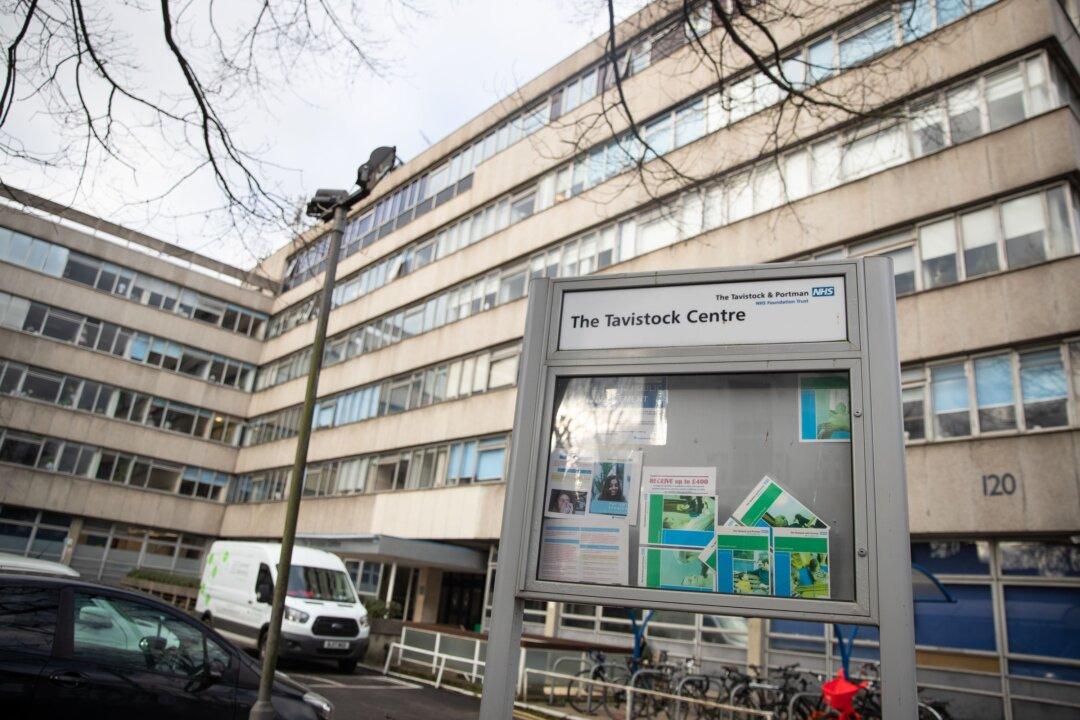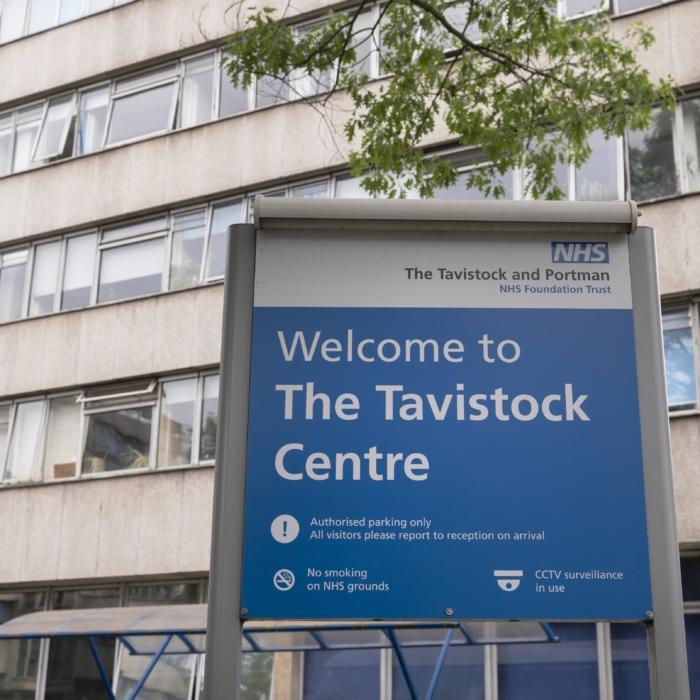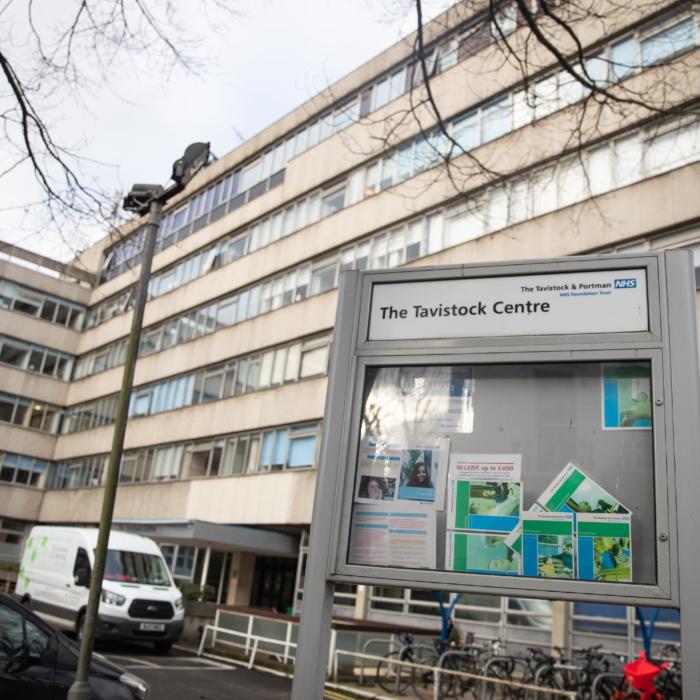A private clinic offering hormone treatment for gender-confused young people has become the first in the UK to be registered with England’s health care watchdog.
The Gender Plus Hormone Clinic, which has branches in London, Birmingham, and Dublin, was registered to practise by the Care Quality Commission (CQC) on Jan. 9.
It comes just as the NHS Tavistock Centre is set to close in the spring following a series of scandals and a damning report that found it was “not safe” for children.
The new clinic is part of the British and Irish private service Gender Plus, which offers young people questioning their gender identity psychological counseling for a fee of up to £275 for a one-hour session.
Seven of the medical staff—around half the team—at the Gender Plus clinic have previously worked for the Tavistock, leading to accusations it is “looking like Tavistock 2.0.”
Concerns were raised that the counseling services were operating last June without being registered with the CQC by organisations such as Genspect, which question the “affirmative” approach to treating gender-questioning people.
A spokesman for the Bayswater Support Group, which represents the parents of gender-confused children, warned: “Gender Plus looks like Tavistock 2.0. The claim that this private clinic is following the evidence-based reforms set out by the Cass Review appears very unlikely.”
Treatment at the hormone clinic can be booked via its website without an NHS referral, and hormone treatment could begin for those aged over 16 after as few as six sessions, only one of which needs to be in person as online counseling is also offered.
Puberty blockers will not be prescribed for children under 16, the clinic said, following widespread criticism of the Tavistock Centre after a series of whistleblowers came forward to accuse the centre of giving “gender affirming” treatment, where staff too readily agreed to a young person’s “transgender” identity.
The NHS is set to replace the north London based Tavistock Centre—the only facility offering free treatment to gender-questioning children in England and Wales—with a series of regional hubs, but the opening date of these new centres has not been confirmed, leaving a gap in the market for private providers to step in.
The children’s clinic, part of the Tavistock and Portman NHS Foundation Trust, was rated “inadequate” by the CQC, and the Cass Review ruled it was unsafe after a number of young people were placed on hormone treatments that set them on a path to irreversible and life-altering surgery, which they came to regret.
‘Stamp of Approval’
Gender Plus says on its website that it comprises of “a team of clinicians specialising in gender identity with related qualifications and skills in delivering psychological therapies as well as neurodevelopment assessment and support.“This is in addition to specialist gender assessment and endocrine expertise. Gender Plus has been set-up to meet the need for timely access to high quality gender care that is person centred, holistic, respectful and comprehensive.”
Dr. Aidan Kelly, the medical director of the new clinic, said, “In this area where there’s so much scrutiny and uncertainty from parents, patients and other professionals, this [greenlight from the CQC] is a stamp of approval and lets people know we are held to the highest standard.”
Dr. Kelly, who worked at the Tavistock for five years, said patients would be offered support and counseling that took into account their gender, sexual orientation, neurodiversity, and mental health, to develop an appropriate care plan.
Around one third of the young people with a referral to the NHS Gender Identity and Development Service (GIDS) have been found to be neurodiverse, leading to fears that autistic children are particularly vulnerable to gender ideology being pushed by radical “trans-activist” groups.
Dr. Cass expressed deep concerns about the treatment model taken by the service, concluding that primary and secondary care staff had to adopt an “unquestioning affirmative approach,” effectively agreeing that a child’s self-declared transgender status was real.

Keira Bell sued the NHS trust after she was given puberty blockers as a teenager after only three hours of consultation at the Tavistock Centre. She initially won her case that children under the age of 16 considering gender reassignment were unlikely to be considered mature enough to give informed consent to be prescribed puberty-blockers, but the Court of Appeal overturned the judgment and found that parents could consent to their children being given puberty blockers.
Ms. Bell had a double mastectomy aged 20, and came to regret her transition, which has left her with “no breasts, a deep voice, body hair, a beard.” It has affected her sexual function and may have left her infertile.
In her book “Persuasion,” Ms. Bell described her gender confusion as being related to her mother’s alcoholism, her struggles with puberty and with being gay, social isolation, and depression.
The NHS said in a statement that it is reforming children’s gender identity care “to provide a holistic assessment of a child’s needs.”
The statement added that NHS England was also “consulting on proposals to restrict referral routes to children’s gender identity services, meaning that children are assessed by secondary paediatric services or Children and Adolescent Mental Health Services (CAMHS), before a referral to specialised gender identity services.”
The CQC states on its website that all new services will be subject to inspection to ensure they are “safe, effective, caring, responsive, and well led.”
The CQC said in a statement to The Epoch Times: “Last year we looked into whether Gender Plus needed to be registered or not—which we could not establish from the website alone.
“However, at that time the clinic was not carrying out regulated activity, so no action was taken. It now does wish to provide such services, so it has registered with us.
“It will now be subject to ongoing monitoring and inspections, as all other services are.”







